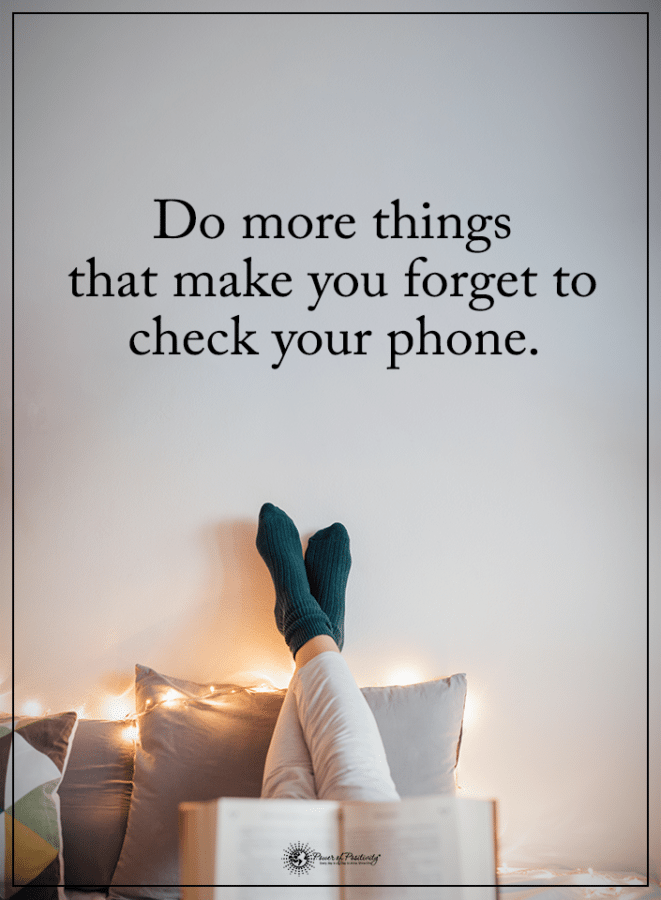The smartphone has permeated society and become so ingrained in our culture that we really don’t give it a second thought anymore. Most of us wake up, immediately check our notifications, and bring our smartphone with us wherever we go, which ties us to it like a dog to a leash.
“The difference between technology and slavery is that slaves are fully aware that they are not free.” – Nassim Nicholas Taleb
Constantly checking our phones comes with a slew of health and psychological problems from staring at a tiny little device. It’s hard to fathom how a whole society can succumb to such an unhealthy addiction. Still, it also comes as no surprise seeing how we’ve become addicted to many other toxic habits and behaviors.
Below, we’ll go over the harmful effects of smartphones, and some solutions to this ever-growing problem.
Science Explains How Smartphone Addiction Creates Rude And Depressed People
Health Problems Associated With Smartphones
First off, we’ll talk about how smartphones make us physically unhealthy. Think about how often you stare at your phone and what position you place your head and neck in to do this. Your head weighs between 10 and 12 pounds, and bending it down for hours a day to look at your smartphone can put up to 60 pounds of pressure on your head and neck. Holding this position for so long can lead to loss of curvature of the spine, which can cause something called “text neck,” affecting many people each year.
Not to mention, this posture can even cause mood, behavior, and memory problems. According to the National Center for Biotechnology Information, poor posture can make us depressed, and lethargic, and even affect the oxygen our lungs can take in.
Furthermore, using our cell phones for so much of the day can affect our circadian rhythm, making it difficult to fall asleep at night. Many people even wake up in the middle of the night just to check their smartphones!
Also, smartphones require us to stare at one thing for an extended period of time, which spells disaster for the health of our eyes. “Tired eyes” are becoming an epidemic, because we were never meant to stare at one object for such a long duration.
How Smartphones Affect Our Moods
Despite how antisocial and disengaged our environment, 75 percent of Americans don’t think their smartphone usage affects their ability to pay attention in a group setting, according to the Pew Research Center. Indeed, a third of Americans believe that using their phone socially benefits conversation.
We’re in complete denial of just how deeply addicted we’ve become to our devices and how this addiction affects us and those around us.
Smartphones effectively remove us from our reality, and if we have children, this can create long-term problems because they like to emulate our behavior. They’ll do the same if they see us with our heads down and immersed in our tech. This can severely stunt their development and create antisocial behavior, not to mention they will have to fight for your attention, which can make them feel unimportant and neglected.
Sadly, many parents even hand their kids their phones or iPad to keep them occupied or to calm them down during a tantrum. However, this doesn’t teach them any valuable skills and can result in a loss of nonverbal cues, which further stunts their emotional and mental growth.
If you look around you, you’ll see that the smartphone craze affects people of all ages. In fact, in 2015, the Pew Research Center reported that 24 percent of teenagers spend time online “almost constantly.” According to a Nielsen Total Audience Report from last year, most adults spend 10+ hours a day on electronic devices.
So, how exactly does our smartphone addiction affect our moods and ability to engage in our environment?
“Mobile devices are the mother of inattentional blindness,” said Henry Alford, the author of “Would It Kill You to Stop Doing That: A Modern Guide to Manners.” “That’s the state of monomaniacal obliviousness that overcomes you when you’re absorbed in an activity to the exclusion of everything else.”
A Study That Confirms the Impact of Smartphone use on Society
In a study published in Psychology of Popular Media Culture, researchers found that 70 percent of women said smartphones interfered with their relationships. So, our ability to engage with our environment decreases drastically with the use of our phones, and this can put a real wedge between you and your partner, friends, coworkers, family members, or anyone else important to you.
According to a study by the University of Essex in the United Kingdom, participants felt negative feelings toward the person they were conversing with when a cell phone was visible. Researchers asked 34 pairs of strangers to discuss both minor topics and important personal events that occurred in their lives. Half of the participants had a mobile device present. However, the other half had a notebook out on the table.
The results showed that the people who discussed serious events in their lives with a notebook visible felt trusting and close to the stranger, unlike those who had a cell phone present.
This proves that cell phones can interfere with relationships, especially if people are having a heart-to-heart conversation. Not to mention, using cell phones excessively can promote antisocial behavior and cause people to lose valuable social skills.
Researchers at the University of Michigan have found that empathy levels have decreased dramatically while narcissism has gone through the roof. Our emotional and physical well-being continue to go down the tubes while we allow smartphones to influence our lives and society.
We haven’t even gotten to the stress levels that constantly checking our cell phones produces within the body. A study performed at the University of Gothenburg in Sweden found that women who used their phones excessively were prone to sleep disturbances and stress. Conversely, high mobile use in men was linked to depression and sleep interruptions.
So, in conclusion, smartphones make us depressed, anxious, stressed, unhealthy, moody, antisocial, narcissistic, and uncaring toward others. How can we continue to operate in society knowing this information?
The Solutions To Our Smartphone Addiction
Well, smartphones seem to have become such a staple in our culture that we can’t get rid of them anytime soon. How can we still have them while maintaining our mental, physical, and emotional health? We have a few suggestions.
1. Limit your time on your phone.
We know; easier said than done. However, try to reduce your smartphone to 30 minutes daily. After you’ve mastered that, cut down another 15 minutes, and then another 15. Take baby steps so that you don’t get overwhelmed too quickly.
2. Change how you use your smartphone.
Sure, you could spend all day on your phone if you wanted to, with the number of apps and entertainment readily available. However, this is a big part of the problem. We use our phones not just to call and text people anymore. We use them to escape, as a crutch, or as a substitute for talking to real human beings around us.
This is not healthy behavior, so if you recognize this in yourself, it’s important to accept this first of all. Once you identify the behavior, you can work on changing it. Use your phone only to talk to family and friends, severely limiting your time doing anything else. Phones were never meant to substitute for living in the real world.
3. Have hobbies and other interests.
It’s also important to use your time doing things you truly enjoy. While sitting on a smartphone all day is certainly easy, is it truly fulfilling? Most people would probably say “not at all.”
Try to find things to do that engage you with others. That’s because human interaction is absolutely necessary for good mental health.
Final thoughts
It’s easy to turn a blind eye to the problem that smartphones create for society, but that will just amplify the problem. We all need to strive to put down our technology more. Instead, make an effort to engage with our fellow human beings. Smartphones create walls between us, making us rude and more fearful and distrusting of our neighbors while talking with them helps us realize that we’re all more connected than we think.




















